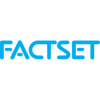Today’s job market is tough for any industry and the marketing industry is no exception. Not only is there an influx of applicants for every job, but the industry frequently has job hoppers gumming up the hiring process. So how is a professional supposed to compete?
If there’s one phrase that is overused in the industry, it’s “think outside of the box” — but that’s exactly what these six individuals did to try and score more attention. For some of them, it actually helped land their dream job.
1. British student buys promoted tweets
Tom Pascoe-Williams, a soon-to-be-graduate of Manchester Metropolitan University, knew his job search as an agency creative would be tough upon graduation. To help tip the scales in his favor before finishing up this spring, Pascoe-Williams decided to send out a few promoted tweets on Twitter touting his search for an account management internship.
Pascoe-Williams spent £370, or around $616, on the promoted tweets and it seems to be paying off. According to an interview with Digiday, the stunt collectively resulted in 8,940 engagements and led to multiple interview opportunities. At the time of the interview, Pascoe-Williams was already in negotiations for several positions.
Soon to be graduate looking for an account management internship in the London advertising/digital marketing scene. http://t.co/f7aD6JebPs
— Tom Pascoe-Williams (@tompascoew) February 11, 2014
2. The Google Analytics resume
Online marketing manager Simone Fortunini wanted a resume that showcased his skills, but also stood out in his industry. His solution was to create an interactive website that mirrored a Google Analytics dashboard – something he knew anyone at potential agencies would be intimately familiar with.
Visually, the resume looks identical to a Google Analytics page, but the content showcases Fortunini’s skills and experience rather than offering SEO insight. For example, former positions are listed under an “Experience” section that can be clicked to read more, and his educational background is showcased on a Google Map similar to the one showing where site visitors are from.

3. The Candy Bar Resume
New York resident Nick Begley was struggling to find a job in 2009 after the economic downturn hit. He was on the hunt for a marketing position, but knew he had to do something to set himself apart from the competition. His idea appealed to employers’ sweet side by literally offering them a chocolate candy bar.
Begley had labels printed up that resembled Nutrition Facts, but instead outlined his skills and experience. Reportedly, each personalized bar cost Begley about $2.50with the total cost coming to $15. His friend posted a photo of the custom Crunch bar on Reddit. The post quickly hit the front page and Begley was soon fielding all kinds of inquiries from media and potential employers. Eventually, he landed a job with LeagueApps, a digital marketing firm for local sports leagues in New York.

4. The Google Job Experiment
Copywriter Alec Brownstein was in the market for a new position in 2010. In order to grab a creative director’s attention, Brownstein took a clever, but risky, chance with some Google Search Ads. Brownstein knew that creative directors had a habit of Googling their own names, so he purchased ads for several creative directors (David Droga, Tony Granger, Gerry Graf, Ian Reichental, and Scott Vitrone) at the agencies he wanted to work for.
For a total cost of only $6, when those names were Googled, the top search result was an ad reading “Googling yourself is a lot of fun. Hiring me is fun, too.” The copywriter scored interviews with four of the five directors and eventually took a position with his first choice agency, Y&R New York.
5. The Talking Mouth Resume
When French art director Victor Petit was looking for an agency internship, he kept in line with tradition and created a printed resume. The paper aspect, however, was about where the similarities with other resumes ended.
On one side of Petit’s resume, he printed a photo of his face with a QR code where his mouth should be. Employers that scanned the QR code with their smart phones soon found Petit’s mouth talking on their screen. The future intern knew that expressing himself vocally would help set him apart from the large pool of applicants. The video below, also produced by Petit, shows how the mouth lines up on the resume.
6. The Box Resume
Many creative types attribute their ideas to the magical elixir that is coffee, but for Kenyan art director Omondi Abudho that attribution is a bit more literal. Abudho, already well known for his photography skills, was searching for an agency position when he came across the idea for his “box resume.”
Abudho was inspired by the packaging of gourmet brand Java Coffee and actually thought of the idea to mirror his resume after the brand's box when making a routine purchase. From there Abudho developed a resume that folded into a box with a nutrition facts-like label listing his credentials. Immediately after sending out the foldable resume, Abudho received three job offers. He is currently creative partner at the Scanad agency in Nairobi.

Would you like to see more marketing industry news and information like this in your inbox on a daily basis? Subscribe to our Marketing Dive email newsletter! You may also want to check out Marketing Dive's look at how 5 companies are leveraging the "command center" approach to social media.













